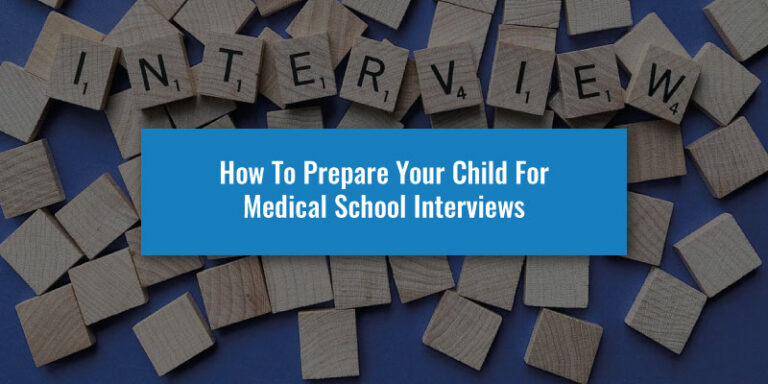MMIs are a contrast to the older and more traditional style of a “panel” Interviews. Understanding the format and what scenarios may come up is key for MMI success.
Many UK medical schools use them now so they can assess a candidate’s qualities and judge how they react to different situations. They are an effective way to test multiple skills, traits and insights that a traditional panel Interview probably could not. In this ultimate MMI guide, we will take you through what MMIs are, the scenarios that are used and how to prepare for them.
What Are MMIs?
An MMI, or Multiple Mini-Interview, is a style of Interview where the candidate undergoes a series of small Interviews in rapid succession. The Interviews are a series of stations with different scenarios that candidates have to engage with. This is good for many reasons including:
- It diminishes the influence of individual interviewers, and is more likely to have a fairer judgement for the applicant.
- It gives the Interviewee a much broader set of tests, and focuses more attention on their people skills, attention to detail, communication ability, intelligence, and intuition.
MMIs are so different to normal Interviews. This means it is vital to prepare for them to maximise your chances of receiving your Medicine offers.
With over 95 hours of guided study (including One-To-One Tuition, Mock Interviews, Intensive Courses and Comprehensive Materials), our expert MMI Medicine Interview support truly gives you an advantage that can make the difference between an offer and rejection.
Discover our MMI Interview Programme by clicking the button below to enrol and triple your chances of success.
How do they work?
In an MMI, you have multiple stations that last around 10 minutes each. When that 10 minutes is up, you move on to a new station and a new interviewer. They also tend to be slightly more interactive with the tasks to perform in each station. Each mini Interview is different. It may be a series of questions or a role-play situation involving actors that the applicant needs to respond to.
Where in a panel Interview you could expect questions like “why Medicine and not nursing?” or “What style of teaching does this school use and why would it suit you?”; in an MMI you could expect a station such as discuss the pros and cons of an opt-out system for organ donation. At the same time, you could be expected to attempt to build a model from Lego!
Which Medical Schools Use MMIs?
Many different UK medical schools use MMIs and some, who usually use MMIs, decided to use panel Interviews over MMIs for online Interviews because of COVID, such as Sheffield Medical School and UCLan. Here are the med schools that used MMIs in 2021:
- Aberdeen
- Anglia Ruskin
- Aston
- Birmingham
- Brighton and Sussex
- Bristol
- Buckingham
- Brunel
- Cardiff
- Edge Hill
- Edinburgh
- Exeter
- Hull York
- Imperial
- Keele
- Kent and Medway
- King's College London
- Lancaster
- Leeds
- Leicester
- Lincoln
- Manchester
- Newcastle
- Norwich
- Nottingham
- Plymouth
- Queen’s University Belfast
- St Andrews
- St George’s
- Sunderland
- Warwick
What are the MMI Stations?
It can be difficult knowing how to tackle the MMI. The questions or scenarios that you will have to deal with will all be at separate stations, all with a very particular focus in mind. The following list of scenarios uses collected data and feedback from the experiences of various students:
Ethical Scenarios
At these stations, students will be given a difficult ethical situation to respond to. They must show consideration towards the patient and everyone involved, whilst also adhering to proper medical conduct, and trying to reach the most ethical and moral compromise possible in a difficult but very plausible real-life scenario. Here are some examples:
- The candidate is given the profiles of 20 people, and asked to choose which 5 they would save in an imminent disaster.
- The candidate is asked ‘which of the four pillars of Medicine (autonomy, justice, beneficence, non-maleficence) is most important, and why?
- An actor pretends to be an underage girl who is asking her doctor for contraception, to which the applicant must respond in a considered and careful manner.
Breaking Bad News
At these stations, the student will be tested on their ability to show compassion and understanding in a ‘real life’ situation. These stations often involve actors, who will assume the role of a patient, friend, or neighbour. The student will assume the role of a doctor or a friend. They will be told that they have to tell the actor some bad news, which will likely make the actor react strongly.
Students should remember to be considerate, friendly, and compassionate to the person they are breaking the bad news too.
- The candidate has to tell an actor that they have a serious illness, and deal with the strong reaction that the actor has been instructed to respond with.
- The candidate has to tell their ‘friend’ that they have broken one of their favourite objects, or run over their cat.
Traditional Interview
The style of this station simply subjects the applicant to a traditional style ‘question and answer’ Interview, which will focus on typical categories of questions relating to medicine, or the candidate’s suitability for the position. Some basic example questions you might expect include:
- An interviewer will ask the applicant to explain why they chose Medicine.
- The applicant may be asked to describe certain internal system of the body.
Data Analysis Stations
This style of station is based mostly on unseen material that the student will have looked at for a few minutes before the actual Interview. This tests the student’s ability to take in new information and analyse it in a meaningful and intelligent way. Some example data analysis stations are:
- The applicant is given a graph showing rates of disease for a certain time and place, and asked to comment on it in a constructive and thoughtful manner.
- The applicant is given a passage of information about the nervous system, and asked to describe the main ideas behind the article.
Teamwork Tasks With Other Applicants (PBL)
This type of station may involve more than one student, or just a single student and an Interviewer/actor. They will be given a task as a group that needs to be solved using teamwork and strong clear communication skills. Here is an example MMI teamwork task:
- The candidate is placed in a small group of other applicants, and is asked to try to solve a logical or ethical puzzle, like having to come to a group consensus on what to do in an ethical scenario.
These are sometimes known as PBL Stations, which stands for Problem-Based Learning. PBL is a popular teaching style used by many medical schools in the UK, in which students learn by patient cases and group work.
Dealing With A Co-Worker
These stations are similar to those involving breaking bad news to an actor. Students are placed in a role-play situation involving them (acting as a doctor) and a co-worker of some description. In this scenario, the doctor needs to talk to their co-worker about something they might be doing wrong, whilst remaining compassionate and calm. Here are some example scenarios:
- Candidate is told that they suspect one of their co-workers has been drinking at work, and needs to confront them (an actor) about it, and deal with it in a moral and sensitive way.
- Candidate is asked to explain to a co-worker why the approach they are taking to a medical issue is not the right way forward.
Explanation And Communication
Explanation and communication scenarios are integral skills for any future doctor; hence why these skills are tested. Here are some explanation scenarios:
- The candidate is asked to describe a practical task to an actor without using their hands, such as how to use chopsticks. The actor will assume zero prior knowledge, and take the applicant’s suggestions entirely, making clear explanation essential.
- Being put into a pair and being asked to draw a picture through your partner’s instruction, without having seen the picture.
How to Prepare
The most effective way to prepare for MMIs is by going through as many different scenarios as possible. The aim with MMI preparation is to have an understanding of the abstract-style questions such as the typical Interview questions and scenario-based questions such as empathy tests; knowledge stations such as what hospitals you could be placed at whilst studying but also knowledge of the healthcare system and laws in the UK.
When going through the different scenarios, ask a friend, parent or teacher to help you with role-play stations, and situational judgement. You could have them ask you how you’d react when you see a colleague drinking alcohol whilst on placement. Whenever you have a free second, get your friends and family to ask you questions and just keep practising.
If there’s more than one of you at your school who are applying for Medicine (or Dentistry), it would be worth considering that you could help each other and work together. Share resources, have practice sessions together and give each other constructive criticism. Even if you have only a couple of times a week when you’re both free, it can really help to just sit down with someone and discuss an issue such as organ donation – each takes a different stance, set a timer and see how you get on.
Final MMI Tips
- Keep calm – it is high pace but just do your best. If you are stressed, you will not perform well so take a deep breath before you go in and just try your hardest.
- It’s not all over if one station goes horribly wrong, you will walk out of it and into a new one where you can make a new impression and the old one will not have a knock-on effect.
- Use the minute (or so) of reading time outside the station to think what you might do. The station will be explained to you on a piece of paper outside and this allows for thinking time, USE IT WISELY!
- Don’t be disheartened if you cannot complete a station, some are not meant to be achievable in the time allowed and they want to see how you react to stress and not being able to complete a task.
- Whatever medical school you Interview for, do your research and find out as much as you can about the Interview because the more you know, the more prepared you will be on the day and therefore the better you will perform.
It’s undeniable that the MMI is an effective way to assess multiple skills, traits and insights that a traditional panel Interview probably could not. To have the best experience during the MMI, make sure you put some time in to research the medical school’s MMI process, practise with friends and family, and on the day, try and keep calm!
Worried about how you will perform in your MMIs? Our Tuition and Mock Interviews will guide you through the toughest stations.
Our MMI Interview Programme is designed to give you the highest chance of receiving a Medicine offer at the Interview stage. Your expert tutor will work with you to help you gain a critical understanding of what Admissions Tutors are looking for.
Discover our MMI Interview Programme today to learn how you can enrol and triple your chances of success.








